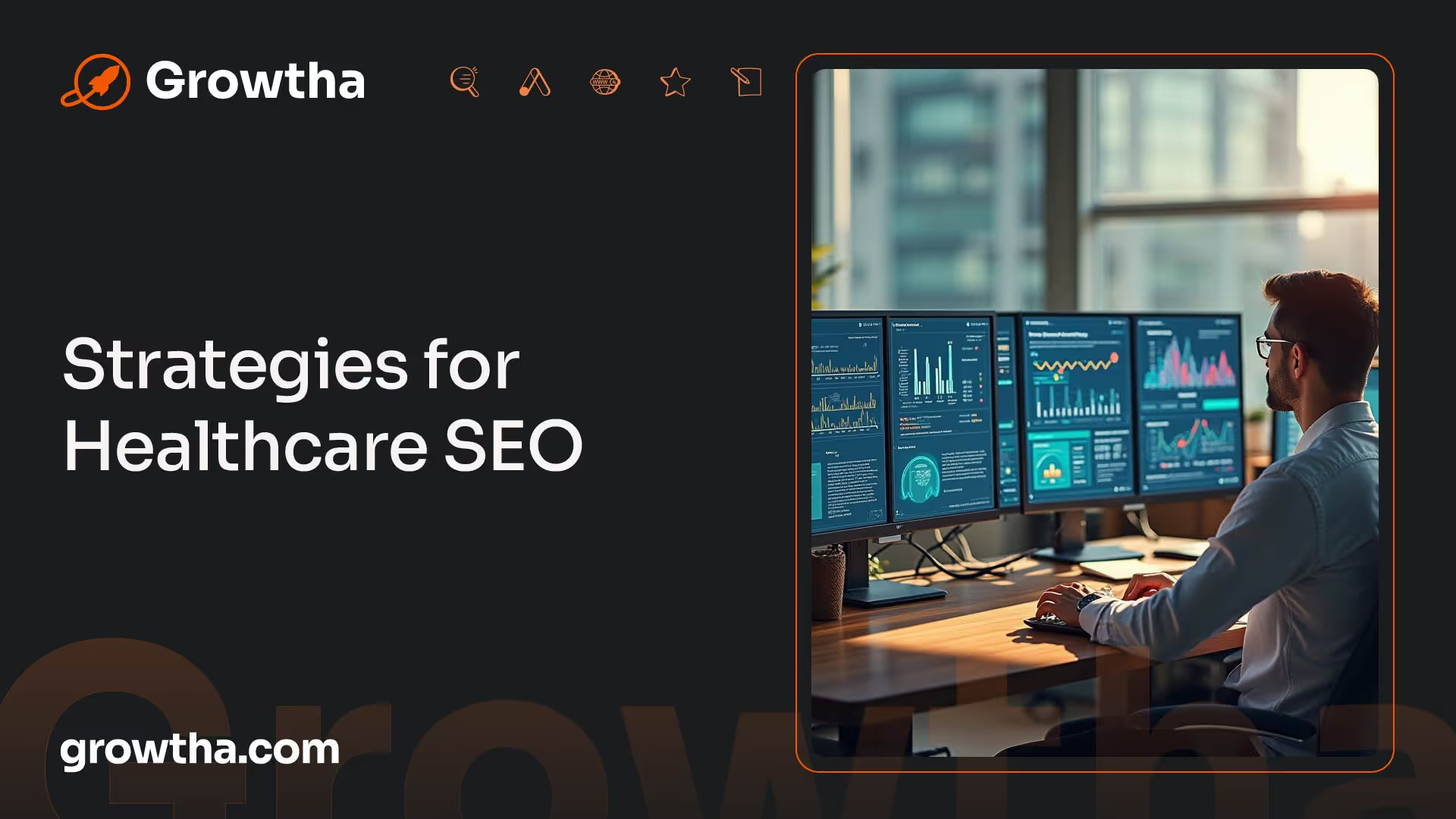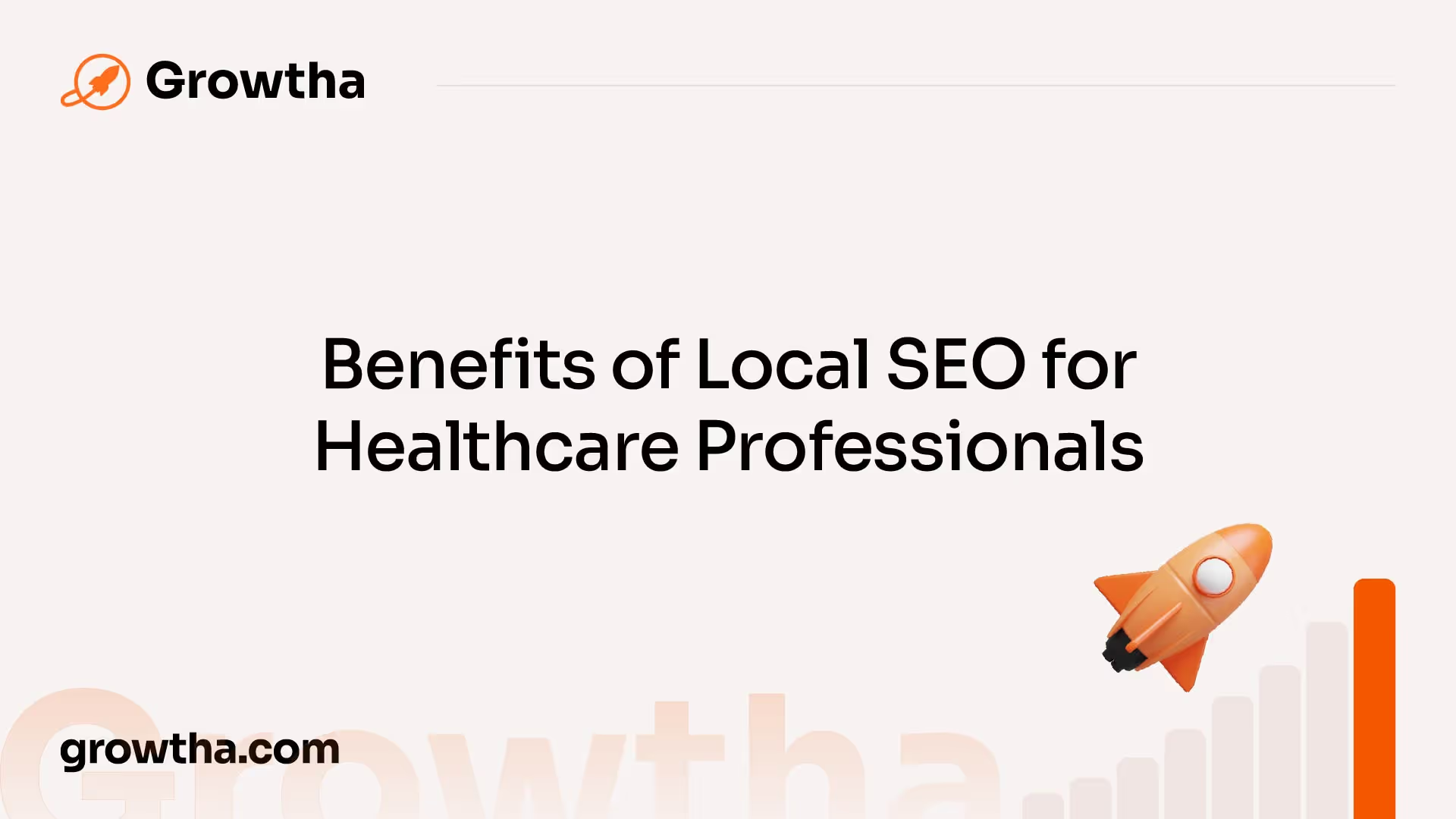Mastering Healthcare SEO for Apps
Healthcare SEO involves strategies to enhance a healthcare provider or business's web presence, aiming to achieve higher rankings on search engine results pages.


Mastering Healthcare SEO for Apps
Importance of Healthcare SEO
In the digital age, having a strong online presence is crucial for healthcare providers and businesses. Healthcare SEO (Search Engine Optimization) plays a vital role in boosting online visibility and attracting potential patients. By implementing effective SEO strategies, healthcare professionals can increase their visibility on search engine results pages (SERPs) and reach a wider audience.
Boosting Online Visibility
Healthcare SEO involves strategies to enhance a healthcare provider or business's web presence, aiming to achieve higher rankings on search engine results pages [1]. The ultimate goal is to appear on the first page of SERPs when potential patients search for specific questions or keywords. Landing on the first page of search engine results can significantly increase organic traffic for healthcare providers.
By implementing proper SEO techniques, healthcare professionals can optimize their websites, making them more visible to search engines like Google. This visibility increases the chances of appearing in relevant search queries, allowing potential patients to discover and engage with their services.
Attracting Potential Patients
In today's digital landscape, patients are increasingly relying on online searches to find medical services. According to HawkSEM, patients search for medical services online twice as much as relying on referrals. This highlights the importance of a solid healthcare SEO strategy in reaching potential patients.
By appearing prominently in search results, healthcare providers can establish credibility and attract potential patients to their websites. A well-optimized website that provides valuable information and a positive user experience can lead to increased patient engagement and conversions.
Investing in healthcare SEO can result in various benefits, including increased visibility, website traffic, and lead quality [2]. By implementing effective SEO strategies, healthcare professionals can position themselves as trusted sources of information and services, ultimately attracting and retaining patients in the competitive digital health space.
Strategies for Healthcare SEO

To effectively optimize healthcare websites and apps for search engines, various strategies can be employed. These strategies include local SEO optimization, keyword research techniques, and link-building and internal linking.
Local SEO Optimization
Local SEO is crucial for healthcare providers, particularly those with brick-and-mortar locations, as patients often seek quick and convenient services close to their homes. By implementing local SEO strategies, medical professionals can enhance their online visibility within their immediate area, attracting potential patients in need of local healthcare services.
Some key tasks involved in local SEO optimization include:
- Keyword Research: Conducting thorough keyword research to identify relevant keywords and phrases that patients commonly use when searching for local healthcare providers. This helps in creating content that aligns with local search intent.
- Website Optimization: Optimizing website content, meta tags, headings, and URLs with location-specific keywords to increase the chances of appearing in local search results.
- Google My Business: Claiming and optimizing the Google My Business listing with accurate business information, such as address, contact details, and business hours. This helps in appearing in the Google local 3-pack, a prominent placement that can significantly boost online and offline traffic for medical practices.
- Local Citations: Ensuring consistent and accurate listings in online directories and review platforms to improve local search visibility and credibility.
Implementing an effective local SEO strategy enables healthcare professionals to create tailored content that addresses the specific needs and interests of their local patient population. This, in turn, increases patient attraction and retention [3]. By ranking higher in local search results, medical professionals can benefit from increased visibility, higher conversion rates, and reduced marketing expenditure, positioning themselves effectively alongside competitors to attract new patients within their area.
Keyword Research Techniques

Keyword research is a fundamental aspect of healthcare SEO. By understanding the keywords and phrases that potential patients use when searching for healthcare information or services, medical professionals can optimize their content to align with user intent and improve search engine rankings.
Effective keyword research techniques include:
- Identifying Relevant Topics: Conducting thorough research to identify the main topics and themes related to the healthcare services or information being provided.
- Analyzing Search Volume: Using keyword research tools to determine the search volume and competitiveness of potential keywords. This helps in prioritizing keywords that have a higher search volume and lower competition.
- Long-Tail Keywords: Targeting long-tail keywords, which are more specific and have less competition. These keywords often reflect the specific needs and queries of potential patients.
- User Intent: Understanding the intent behind search queries and aligning content to provide valuable information or solutions. This helps in attracting the right audience and improving user engagement.
By incorporating relevant keywords strategically into website content, meta tags, headings, and URLs, healthcare professionals can increase their visibility in search engine results and attract organic traffic from individuals actively seeking healthcare information or services.
Link-Building and Internal Linking
Link-building is an essential aspect of healthcare SEO as it helps to establish the credibility and authority of a healthcare website or app. By acquiring high-quality backlinks from reputable and relevant sources, medical professionals can improve their search engine rankings and increase their online visibility.
Key considerations for link-building and internal linking include:
- Relevant and Authoritative Sources: Seek backlinks from authoritative healthcare websites, medical associations, or trusted industry sources. These links provide credibility and signal to search engines that the website is a reliable source of information.
- Guest Blogging: Contribute guest posts to reputable healthcare blogs or publications, including a link back to the healthcare website or app. This helps in building relationships, reaching a wider audience, and acquiring valuable backlinks.
- Internal Linking: Utilize internal linking to connect various pages within the healthcare website or app. This helps in distributing link authority, improving user navigation, and enhancing the overall website structure.
By implementing effective link-building and internal linking strategies, healthcare professionals can strengthen their online presence, increase their domain authority, and improve their search engine rankings. This, in turn, enhances their visibility to potential patients and establishes their credibility within the digital health space.
Healthcare Apps and SEO

When it comes to healthcare apps, implementing effective SEO strategies is essential for improving online visibility and attracting potential users. However, there are specific considerations that need to be taken into account when optimizing healthcare apps for search engines. Two crucial aspects to focus on are compliance with regulations and user experience considerations.
Compliance with Regulations
Healthcare apps must adhere to various regulations and standards to ensure the privacy and security of patient data. In the United States, one of the key regulations that healthcare apps need to comply with is the Health Insurance Portability and Accountability Act (HIPAA) [4]. HIPAA sets guidelines for the protection of patients' personal health information and requires healthcare apps to implement appropriate security measures to safeguard this sensitive data.
In the context of SEO, compliance with regulations is crucial because search engines prioritize websites and apps that provide a secure and trustworthy user experience. Ensuring that your healthcare app meets the necessary regulatory requirements not only helps to protect patient privacy but also boosts your app's credibility and visibility in search engine results.
User Experience Considerations
User experience plays a significant role in the success of healthcare apps. A seamless and intuitive user experience can enhance app utilization and patient engagement, leading to better outcomes. On the other hand, a poor user experience can hinder app adoption and usage [4].
From an SEO perspective, user experience is a crucial factor because search engines prioritize websites and apps that provide a positive user experience. When optimizing your healthcare app for search engines, it's important to focus on factors such as app responsiveness, ease of navigation, clear and concise content, and intuitive design. By ensuring a user-friendly experience, you can not only improve your app's search engine rankings but also enhance user satisfaction and encourage positive reviews and ratings.
By prioritizing compliance with regulations and user experience considerations, healthcare apps can optimize their online presence and attract a larger user base. Optimizing healthcare apps for search engines involves a combination of technical and user-centric strategies, ensuring that your app meets the necessary regulatory requirements and provides an exceptional user experience.
Overcoming Healthcare App Development Challenges

Developing healthcare apps comes with its own set of challenges, especially when it comes to ensuring privacy, security, and integrating advanced technologies. Let's explore two key challenges faced in healthcare app development: privacy and security concerns, and integration with AI and IoT technologies.
Privacy and Security Concerns
Healthcare apps handle sensitive personal information, making privacy and security a top concern. Developers must comply with regulations and standards such as the Health Insurance Portability and Accountability Act (HIPAA) in the United States. HIPAA ensures the confidential handling of protected health information (PHI) and sets guidelines for privacy and security practices in healthcare applications [4].
Data breaches in the healthcare industry have affected millions of patient records, underscoring the importance of robust security measures. Healthcare app developers must employ encryption techniques, secure data storage, and implement stringent access controls to protect personal data from unauthorized access [4].
Integration with AI and IoT Technologies
To enhance the functionality of healthcare apps, integration with artificial intelligence (AI) and Internet of Things (IoT) technologies has become crucial. AI can enable personalized recommendations, real-time health status updates, and predictive analytics for better patient care [5].
However, integrating AI and IoT technologies into healthcare apps poses its own challenges. App developers must ensure seamless communication between devices, accurate data collection, and secure transmission of data. Additionally, the management of big data generated by healthcare apps, such as pedometers and calorie counters, presents challenges in terms of data volume and processing, requiring the expertise of skilled mobile app developers.
By addressing privacy and security concerns and successfully integrating AI and IoT technologies, healthcare app developers can create robust and efficient applications that deliver enhanced healthcare experiences to users. It is crucial to stay updated with the latest regulations and best practices in the healthcare industry to ensure the development of secure and innovative healthcare apps.
Benefits of Local SEO for Healthcare Professionals

Implementing local SEO strategies can significantly benefit healthcare professionals by increasing their online visibility and attracting a targeted audience within their local area. Let's explore the specific benefits of local SEO for healthcare professionals.
Increased Visibility and Traffic
According to a study conducted in 2020, 93% of US consumers searched online to find local businesses, highlighting the importance of local SEO for medical professionals in reaching potential patients in their immediate area. By optimizing their website and online presence for local searches, healthcare professionals can increase their visibility in search engine results, making it easier for patients to find them when searching for relevant healthcare services.
For instance, implementing local SEO strategies can increase the likelihood of appearing in the Google local 3-pack, a prime spot that prominently displays three local businesses related to the search query. This prominent placement can significantly boost both online and offline traffic for medical practices [3].
Targeted Audience Reach
One of the key advantages of local SEO for healthcare professionals is the ability to target a specific audience within their local area. By focusing on local search optimization and utilizing location-based keywords, medical professionals can position themselves effectively alongside competitors and attract new patients who are actively seeking healthcare services nearby.
An optimized local SEO strategy helps in higher search result rankings, ensuring that healthcare professionals appear in relevant local searches. This targeted approach increases the likelihood of attracting patients who are more likely to convert and choose their services. By reaching an audience that is geographically closer, healthcare professionals can provide quick service that aligns with patient preferences.
By leveraging local SEO strategies, healthcare professionals can enjoy benefits such as increased visibility, targeted audience reach, and enhanced brand reputation. These advantages can lead to higher search result rankings, increased conversion rates, and reduced marketing expenditure, ultimately helping medical professionals grow their practice and attract new patients within their local area. It is clear that local SEO is an essential strategy for any healthcare professional looking to establish a strong presence online and connect with their local community.
Best Practices for Healthcare SEO
To achieve success in healthcare SEO, it is important to implement best practices that can enhance online visibility and attract potential patients. Two key areas to focus on are consistent content creation and off-page SEO optimization.
Consistent Content Creation
Consistent content creation plays a crucial role in healthcare SEO. To see real movement in rankings, healthcare providers need to publish consistent, well-optimized articles every week. It is recommended to produce a minimum of 1-2 articles per week, written by experts and consisting of at least 1,200 words with images, links, a strategic headline, and more [6].
Creating high-quality, informative content not only helps to establish expertise and authority in the healthcare field but also provides valuable information to potential patients. It is important to follow Google's Your Money or Your Life (YMYL) Rules, which require healthcare marketing content to be factual, trustworthy, and of high quality. These rules apply higher standards to medical content due to its potential impact on people's lives.
Off-Page SEO Optimization
Optimizing off-page SEO is crucial for healthcare websites to direct more traffic to their domains. Off-page SEO refers to strategies that are implemented outside of the website itself. One effective strategy is earning backlinks from other reputable websites. Backlinks act as endorsements and can greatly boost the SEO power of a healthcare website [6].
Generating backlinks can be achieved through various methods such as guest blogging, collaborating with influencers, participating in industry forums, or getting mentioned in local directories. By building a strong network of backlinks, healthcare websites can improve their search engine rankings and increase their online visibility.
In addition to backlinks, other off-page SEO optimization techniques include social media marketing and online reputation management. Engaging with potential patients through social media platforms and maintaining a positive online reputation can help establish trust and credibility in the healthcare industry.
By implementing consistent content creation and focusing on off-page SEO optimization, healthcare professionals can improve their online visibility, attract more traffic to their websites, and ultimately reach their targeted audience effectively. Investing in healthcare SEO is a vital component of digital marketing in the healthcare industry [6].
References
[1]: https://hawksem.com/blog/healthcare-seo/
[2]: https://www.growthmachine.com/blog/healthcare-seo/
[3]: https://digitalismedical.com/blog/local-seo-for-medical-professionals/
[4]: https://www.pixelcrayons.com/blog/software-development/challenges-of-healthcare-app-development/
[5]: https://www.linkedin.com/pulse/what-5-challenges-faced-healthcare-app-development-geitpl







